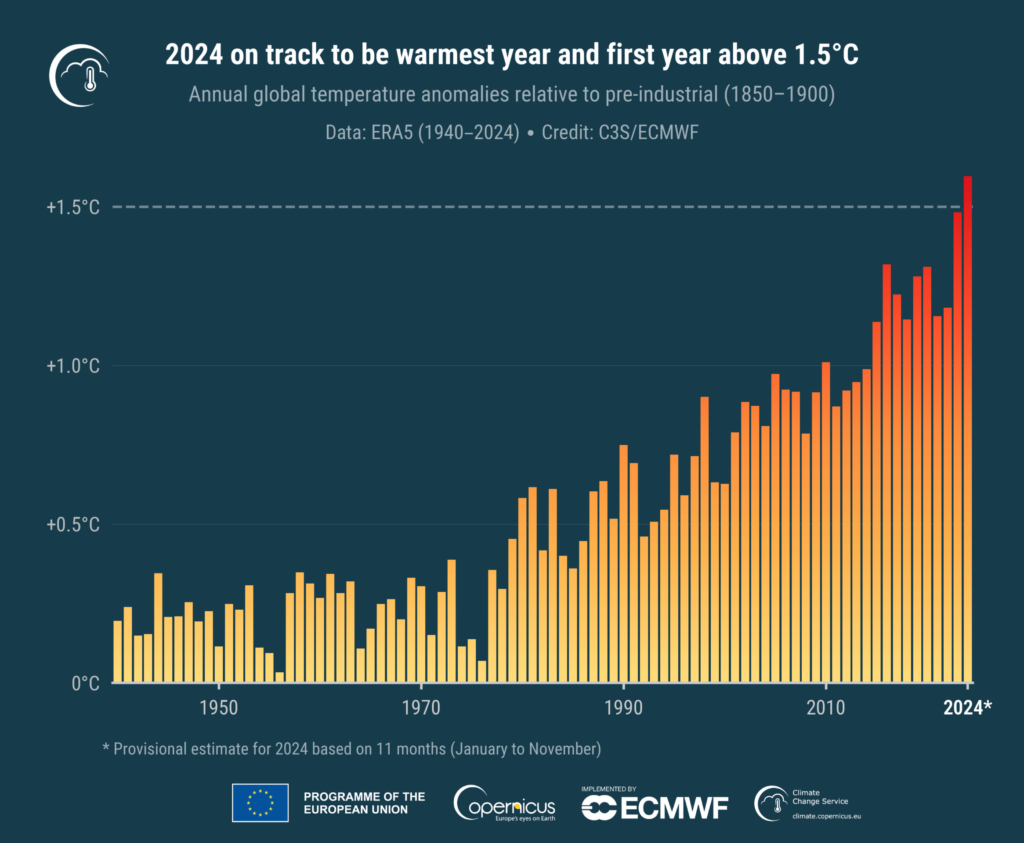November 2024 has been confirmed as being the second-warmest ever recorded worldwide with an average surface air temperature of 14.10°C. This is 0.73°C more than the 1991-2020 average for November and makes it highly likely that 2024 will be the warmest year on record.
The results were confirmed by Copernicus, the EU's Climate Change Service that monitors surface air and sea temperatures, sea ice cover, and hydrological changes around the world.
The average temperature over European land for November was 5.14°C, 0.78°C above the 1991-2020 average for November. This leaves it outside the top 10 warmest Novembers on record for Europe.
To date, average global temperature for 2024 is 0.72°C above the 1991-2020 average. This is the warmest it has ever been by this point in the year, making it almost certain that 2024 will be the warmest year on record. The findings are based on billions of measurements from satellites, ships, aircraft and weather stations around the world.
According to Samantha Burgess, Deputy Director of the Copernicus Climate Change Service, 2024 "will be the warmest year on record and the first calendar year above 1.5°C. This does not mean that the Paris Agreement has been breached, but it does mean ambitious climate action is more urgent than ever."
November brought unusual temperatures in many regions around the world: over northern Russia and across northeastern and southwestern Europe temperatures were above average whilst they were below average over southeastern Europe.
Beyond Europe, temperatures were most above average over eastern Canada and the central and eastern USA, most of Mexico, Morocco, northwest Africa, China, Pakistan, most of Siberia, and Australia.
Sea surface temperatures were unusually high over many regions and the weather service noted that in the Pacific, below-average temperatures indicate a shift towards "La Niña", in which cooler waters push the jet stream northward. This in turn normally leads to drought in the southern US and heavy rains and flooding in the Pacific Northwest and Canada.
Much of Europe experienced above-average precipitation in November, most notably eastern Spain, which experienced "once in a century" floods. Belgium saw another wet month, following the trend of exceptionally damp weather that has already made 2024 the wettest since national records began.


